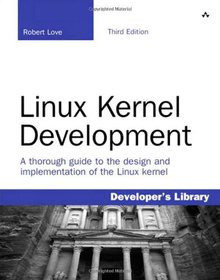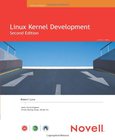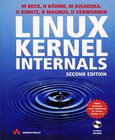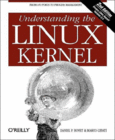Linux Kernel Development
3rd Edition

Book Details:
| Publisher: | Addison-Wesley Professional |
| Series: | Addison Wesley |
| Author: | Robert Love |
| Edition: | 3 |
| ISBN-10: | 0672329468 |
| ISBN-13: | 9780672329463 |
| Pages: | 440 |
| Published: | Jul 02 2010 |
| Posted: | Nov 19 2014 |
| Language: | English |
| Book format: | |
| Book size: | 2.44 MB |
Book Description:
Linux Kernel Development details the design and implementation of the Linux kernel, presenting the content in a manner that is beneficial to those writing and developing kernel code, as well as to programmers seeking to better understand the operating system and become more efficient and productive in their coding. The book details the major subsystems and features of the Linux kernel, including its design, implementation, and interfaces. It covers the Linux kernel with both a practical and theoretical eye, which should appeal to readers with a variety of interests and needs. The author, a core kernel developer, shares valuable knowledge and experience on the 2.6 Linux kernel. Specific topics covered include process management, scheduling, time management and timers, the system call interface, memory addressing, memory management, the page cache, the VFS, kernel synchronization, portability concerns, and debugging techniques. This book covers the most interesting features of the Linux 2.6 kernel, including the CFS scheduler, preemptive kernel, block I/O layer, and I/O schedulers. The third edition of Linux Kernel Development includes new and updated material throughout the book: An all-new chapter on kernel data structures Details on interrupt handlers and bottom halves Extended coverage of virtual memory and memory allocation Tips on debugging the Linux kernel In-depth coverage of kernel synchronization and locking Useful insight into submitting kernel patches and working with the Linux kernel community
Download Link:
Related Books:
Linux Kernel Development
2nd Edition
The Linux kernel is one of the most important and far-reaching open-source projects. That is why Novell Press is excited to bring you the second edition of Linux Kernel Development, Robert Love's widely acclaimed insider's look at the Linux kernel. This authoritative, practical guide helps developers better understand the Linux kernel through updated coverage of all the major subsystems as well as new features associated with the Linux 2.6 kernel. You'll be able to take an in-depth look at Linux kernel from both a theoretical and an applied perspective as you cover a wide range of topics, including algorithms, system call interface, paging strategies a...
Linux Kernel Internals
2nd Edition
Since the introduction of Linux version 1.2 in March 1995, a whole community has evolved of programmers from all over the world who were attracted by the reliability and flexibility of this completely free operating system. Now at version 2.0, Linux is no longer only the operating system of choice for hackers, but is being successfully employed in commercial software development, by Internet providers and in research and teaching. This book is written for anybody who wants to learn more about Linux. It explains the inner mechanisms of Linux from process scheduling to memory management and file systems, and will tell you all you need to know about the s...
Understanding the Linux Kernel
To thoroughly understand what makes Linux tick and why it's so efficient, you need to delve deep into the heart of the operating system--into the Linux kernel itself. The kernel is Linux--in the case of the Linux operating system, it's the only bit of software to which the term "Linux" applies. The kernel handles all the requests or completed I/O operations and determines which programs will share its processing time, and in what order. Responsible for the sophisticated memory management of the whole system, the Linux kernel is the force behind the legendary Linux efficiency.The new edition of Understanding the Linux Kernel takes you on a guided tour through the most significant data structures, many algorithms, and programming tricks used ...
2007 - 2021 © eBooks-IT.org



